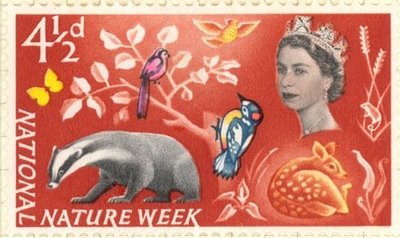It is well known in psychotherapy that giving a name to an unnamed malady can make all the difference in dealing with it: for example, the difficult admission that a beloved relative is an alcoholic can suddenly make sense of years of irrational behaviour. Many people have ills, or troubles of their own mind, which they cannot name, but which they nonetheless know beyond doubt are there; and to arrive at a naming of them may not do away with them, but it may certainly help. I have long had a growing sense that something analogous to this applies to the natural world in Britain: that there is a malady which certain people sense, which distresses them, but which they cannot name, and so is never really discussed. The people who feel this are, by and large, older. They are over 50 – the baby boomers, the post-war generation that came of age in the 1960s and has always been characterised by the explosion of new freedoms and the sound of rock ’n’ roll.
I first became aware of this 12 years ago when The Independent launched its campaign to Save The Sparrow, to try to account for the astonishing disappearance of the house sparrow from London and other towns and cities (which remains, at bottom, a mystery). Among the hundreds of initial responses from readers, we were surprised by not a few which said, in effect, thank God somebody else has noticed – I thought it was only me! Many people had picked up, even if only on the edge of their consciousness, the house sparrow’s vanishing, yet felt unable to articulate it themselves.
More recently, it has seemed to me that what has changed in the life of the baby boomers in Britain is a more general disappearance: the vanishing of abundance in the natural world. Half a century ago, there was simply much more of everything – more wild flowers, more birds, more butterflies and moths, more insects, especially – and the boys and girls of the baby-boomer generation grew up with this all about them, as had every generation before.
Younger people do not register its disappearance, of course, because the world is only as they find it. But when the idea of the vanishing of abundance was first mentioned on this page, two years ago, there was an intense response, from older readers above all; and after I requested specific memories, last week, there was an intense response once more (I will try to acknowledge them all individually). People over 50 remember enormous flocks of lapwings over farmland, and corn buntings on every telegraph wire, and vast clouds of starlings wheeling against the evening sky; they remember nettle beds full of small tortoiseshell caterpillars, roadside verges full of flowers, gardens full of songbirds and ditches full of frogs and toads – all gone. The most common image (it came in three successive emails) is of the car windscreen, splattered with moths and other insects at the end of every night-time journey in summer. Now the windscreens are clean.
Source: The Independent, 19 December 2012
http://www.independent.co.uk/voices/comment/nature-studies-our-generati…

- Login om te reageren
